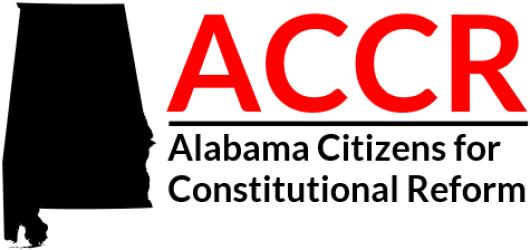Over the past two weeks, we’ve seen numerous business leaders and companies take a stand against racism and commit to building a better future for all in Alabama.
That’s a great thing. It’s also great that so many transformational changes can come from the companies themselves, simply by changing their status quos, implementing new policies and combating racism and bias in their organizations or industries.
But if Birmingham’s business community is really serious about eliminating racism and expanding opportunities for all, not all of the necessary work will fall in that category. As we and others have noted for years, Alabama’s 1901 constitution is one of the biggest impediments to equality and progress in our state. If corporations are truly looking to eliminate racism at home, the conversation has to include supporting a new constitution for Alabama.
It’s embarrassing and a miscarriage of justice that Alabamians – in 2020 – are still voting on amendments to remove racist language from the state constitution. Yet, here we are. But even if the latest amendment passes, and even if all racist language is eventually removed, it still won’t solve the real problem.
Yes, the most blatant and offensive language will be gone, but the undertones and the intent of the 1901 constitution will remain, as evidenced by this speech from the president of the constitutional convention: “And what is it that we do want to do? Why, it is, within the limits imposed by the federal constitution, to establish white supremacy in this state.”
If it’s more than a century later and we still haven’t even purged all of the actual racist language from the document, it’s unlikely we’ve even scratched the surface of the problems with the constitution and how it treats minorities.
The constitution was designed to concentrate the power in the hands of a select few and to also limit the power of cities like Birmingham.
We see its fingerprints often. We see them in an Alabama Legislature that – under either party’s leadership – sees no problems with our lackluster rankings in health care, education, poverty and metrics that disproportionately affect minorities.
We see them with decision after decision that ignores the real challenges facing so many in our state – both in rural areas like the Black Belt and highly populated urban areas like Birmingham.
We’ve seen them with hastily passed legislation designed to usurp power from cities like Birmingham.
Alabama’s 1901 constitution was a poorly built house with bad window-dressing and a rotten foundation. We can remove all of the words and window-dressing we want, but the rot will remain. The only choice is to tear it down and start over.
Frankly, Alabama’s business community is the best hope of making it happen. They are the only group with the power to effect that type of change with the state’s lawmakers, whom history has shown won’t do it on their own.
Getting a new constitution won’t be easy, and it would likely come at a cost for many businesses that supported the effort. It would mean changing the power dynamics in the state, giving more power to cities, counties and the executive branch. It should probably also include sweeping tax reform, which as we’ve noted, could make a huge difference in Alabama simply by adjusting the rates to neighboring states.
Those changes could eliminate some of the consistency that Alabama businesses currently enjoy from the state and local government.
But “it’s too hard” or “we don’t trust ourselves to pick the leaders to do it right” are lame excuses.
We think that’s a small price to pay to eliminate racism and ensure social justice in Alabama.
The question is: do Alabama businesses feel the same?
